Comparing Trout's 0-for-19 slump to all-time greats at their all-time worst
When Los Angeles Angels outfielder Mike Trout walked off the field at the end of Thursday's 7-1 loss to the Tampa Bay Rays, he was sporting the worst slump of his career. Trout has gone hitless across his last 19 at-bats, which has never before occurred during his eight years in the majors.
In fact, the stretch could be derailing what's otherwise been one of the best seasons in MLB history.
However, even the greats go through rough patches, and Trout is showing he's no different. But, how exactly does his slump compare to the worst stretches of history's greatest hitters? Let's take a look at some legendary batters to see how the 0-for-19 measures up.
Ty Cobb (0-for-17, April 1920)*
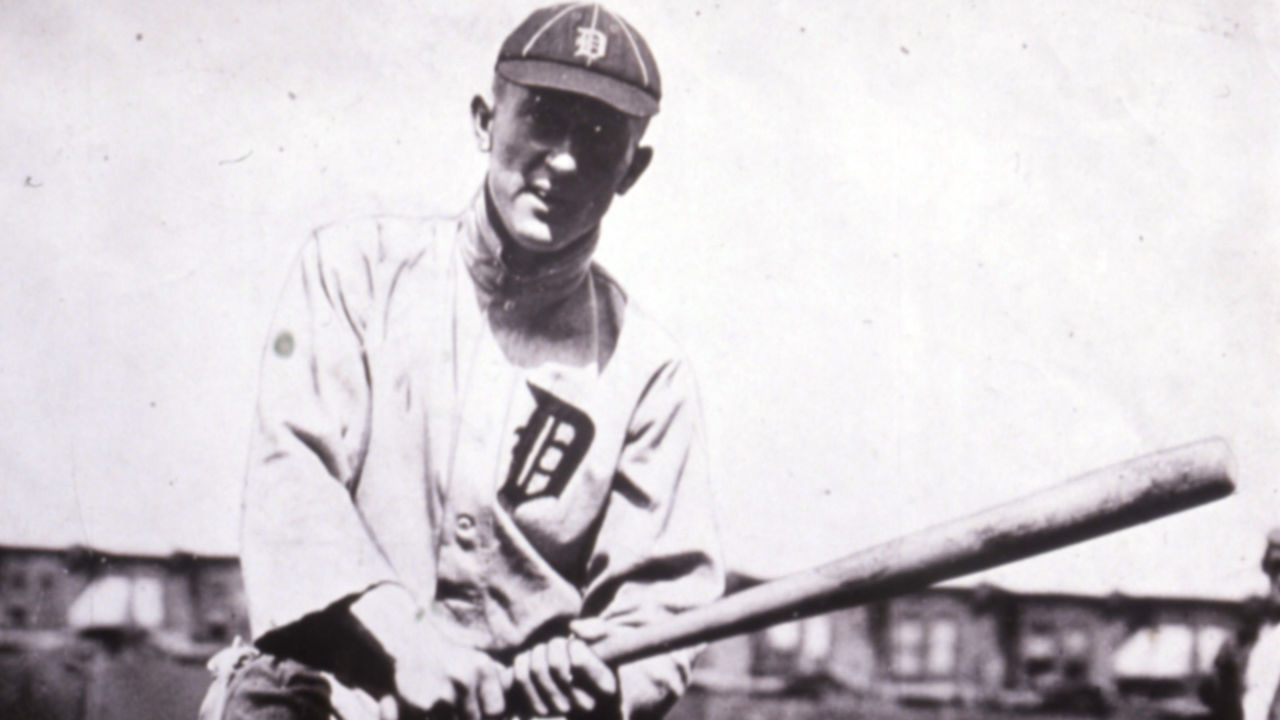
*Disclaimer: While old box scores are available, inning-by-inning breakdowns are not as accessible for some games. Thus, Cobb's hitless run could have been slightly longer based on when he recorded hits at either end.
Early in Cobb's 16th major-league season, he wasn't quite himself. Entering the year, he'd hit .372 over 1,929 games, and to this day remains second on the all-time hits list behind only Pete Rose. But, The Georgia Peach was the absolute pits during what wound up being the coldest stretch of his career.
Cobb went 0-for-17 across five games from April 22 through April 28, 1920. He was hitting .162 after the prolonged drought, and that was as low as his average would ever be. Following the slump, Cobb predictably bounced back strong, going hitless just three times in his next 41 games, and finishing the season with a robust .334 mark.
Babe Ruth (0-for-21, June 1934)
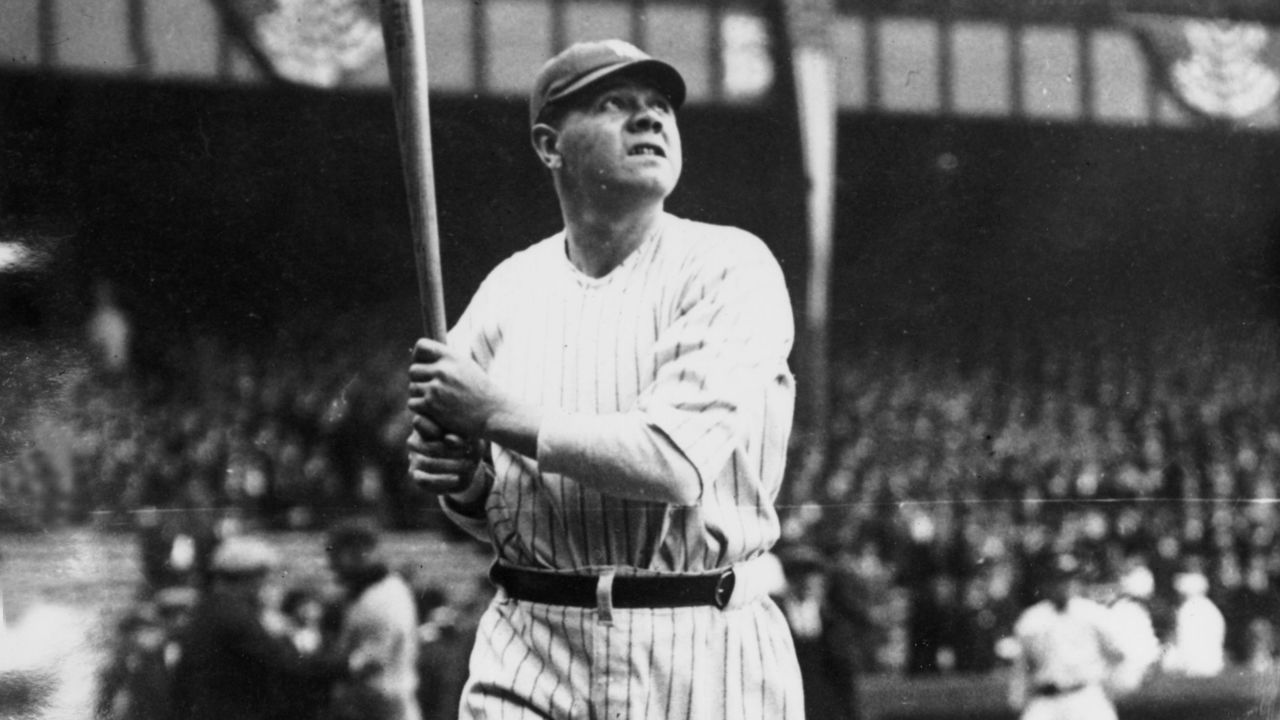
By 1934, The Babe was nearing the end of a storied career. At age 39, it was his final year as a member of the New York Yankees, and his penultimate season as a major leaguer. Despite this, he started the season strong, and by mid-June he was hitting .322 with 10 home runs. Then he hit a snag.
Ruth failed to get a hit over his next 21 at-bats, dropping his average to .283. It wasn't for a lack of contact, either, as he only struck out five times. In late September, Ruth was being used as a pinch hitter more often than not, and while he managed to stop the bleeding, he finished the season with a very human (for him) .288/.449/.537 slash line.
Lou Gehrig (0-for-20, August-September 1936)
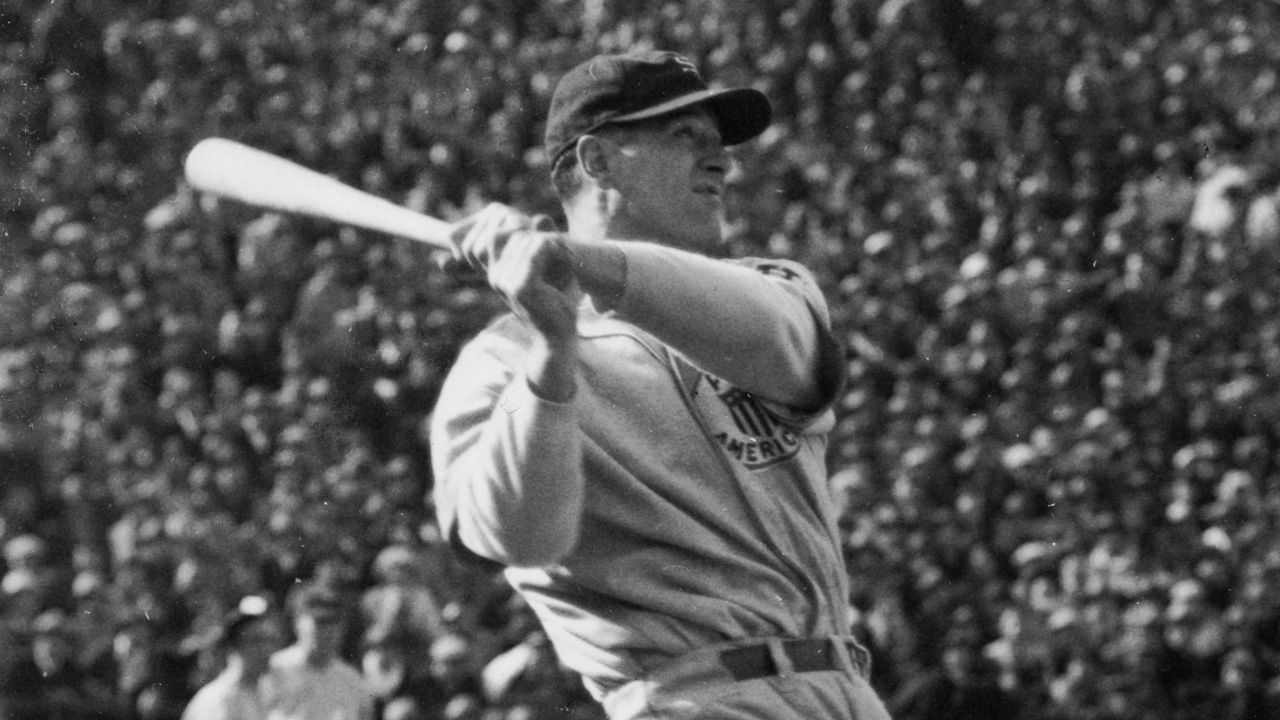
Gehrig hit a wall late in his superb age-33 season. He went hitless over six games, starting with the second contest of a doubleheader against the Chicago White Sox until, coincidentally, getting a pair of hits in the second half of another doubleheader against the Boston Red Sox a week later.
However, this wasn't the story of a waning star sauntering into the sunset. Gehrig was in the process of winning his second MVP award, and no slump was getting in his way. He finished the campaign batting .354/.478/.696 with 49 home runs. In other words, Gehrig posted an all-time great season that would have been even greater without this uncharacteristic streak of futility.
Ted Williams (0-for-17, August 1954)
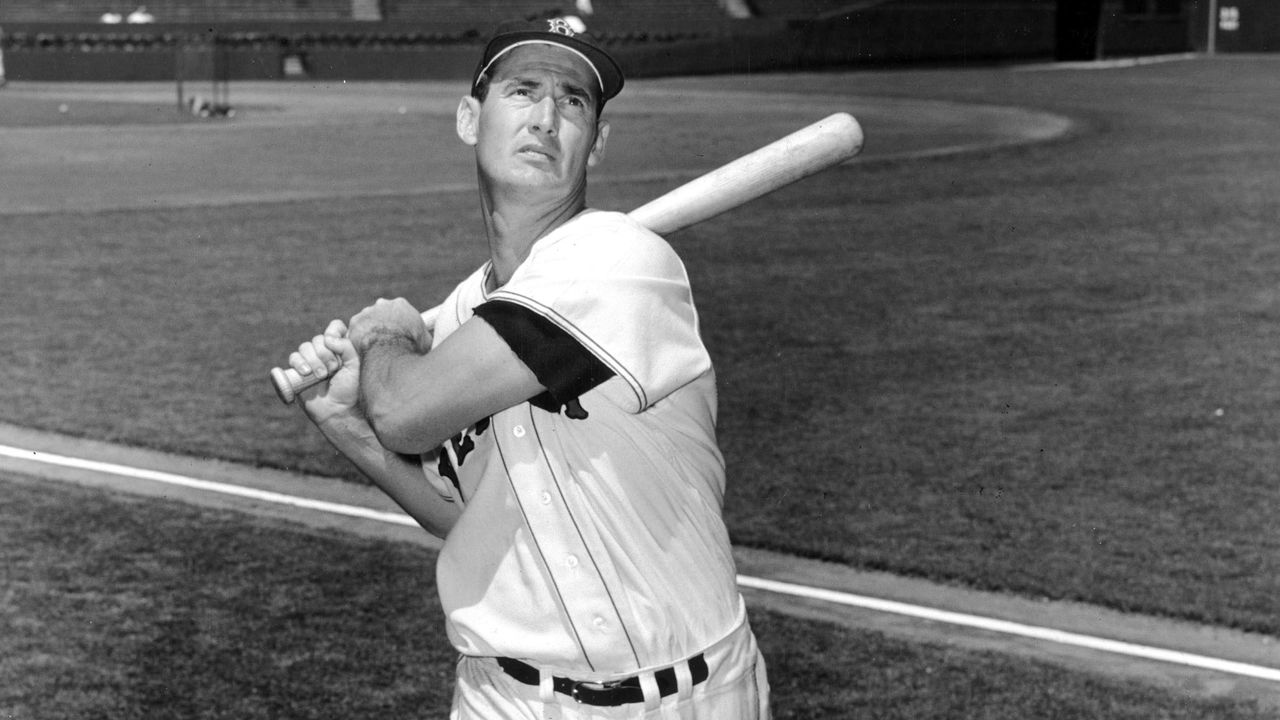
Continuing the trend set by Cobb and much of this list, Williams didn't have his career-worst slump until his 30s. A 12-year veteran, Teddy Ballgame had only played 43 games over the previous two seasons combined due to serving in the Korean War, and his return as a full-time player was greatly anticipated.
He started hot, and rebounded once the inauspicious stretch concluded following four hitless games. It was just a blip on the radar for Williams, who wound up finishing the season with a .345 batting average while leading the majors in walks (136) and on-base percentage (.513).
It also wasn't a noteworthy slump considering what had come before it. Williams didn't play until the middle of May due to a broken collarbone and was apparently on the verge of retiring. He didn't, and instead generally kept hitting at a legendary pace through 1960.
Barry Bonds (0-for-23, July 1986)
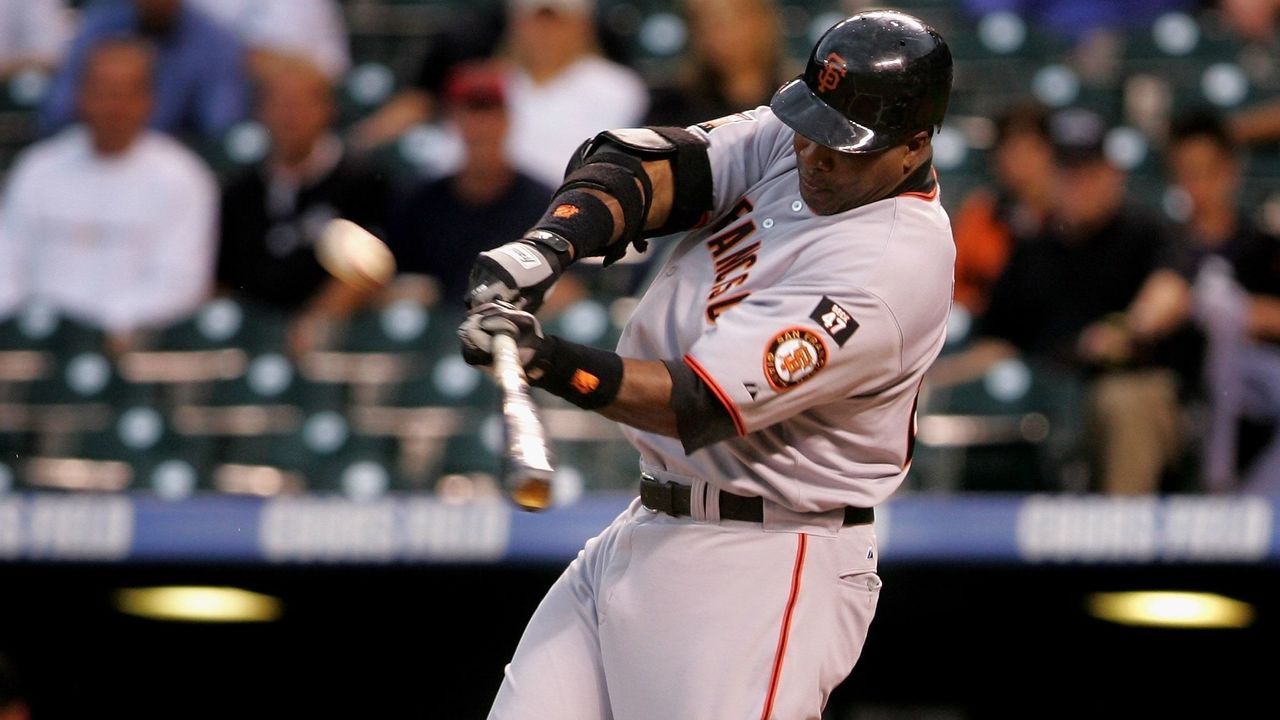
Bonds may be the best comparison for Trout. He didn't hit the skids in the twilight of his career, but instead got it out of the way early.
The absolute worst stretch for Bonds came in his rookie season, when he couldn't buy a hit in July. He even had the All-Star break to recharge his batteries, but it still took him a few games to find his footing. At 21, he wasn't the legendary Barry Bonds yet, and his year-end batting line of .223/.330/.416 is proof enough of that.
Bonds actually becomes a better comparison point for Trout when looking at his second-worst streak. In 1991, a year after winning his first MVP, Bonds scuffled. Following just a pair of singles in the Pirates' first two games, he proceeded to go 0-for-22 and was hitting a paltry .069. Naturally, he returned with a vengeance, finishing 1991 hitting .292/.410/.514 with 25 homers and 43 stolen bases, finishing second in MVP voting.
So overall, Bonds struggled for a short period of time when he was 26 before emerging as the best hitter of his generation. Trout is struggling at 26 and is already seen as the best hitter of his generation. That said, perhaps Bonds' early slump contributed to Terry Pendleton winning the NL MVP in 1991. Could the same happen to Trout in 2018, considering the seasons being had by Mookie Betts and Jose Ramirez?
Tony Gwynn (0-for-19, July 1998)
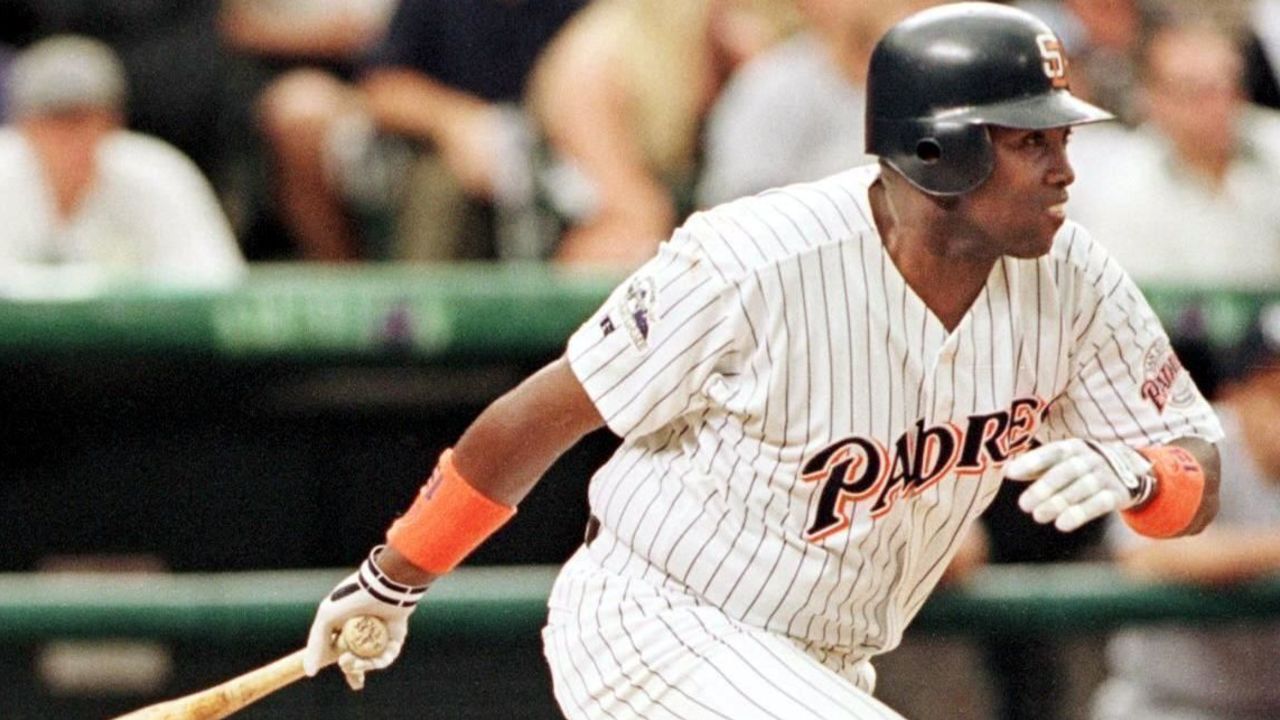
By 1998, Gwynn was 38 years old and his career was winding down. However, Mr. Padre was still as tough an out as anyone, striking out just 18 times in 505 plate appearances.
In early July, however, his expert contact wasn't yielding results. Over the course of seven games, Gwynn went 19 at-bats without a hit. He'd never run into that kind of bad luck across 8,187 at-bats over his first 16 seasons.
It's clear that stars stumble, even when they're at their best. In fact, Trout actually had a similar stretch last season when he went 0-for-17 in late August. When he finally found his footing again, he did it in a big way, going 4-for-4 with a home run, dispelling any concerns about his stature as the game's most dangerous hitter.
He'll have another shot at breaking out of this latest funk Friday night against the Rays.
(Photos courtesy: Getty Images)
(Stats courtesy: Baseball Reference)